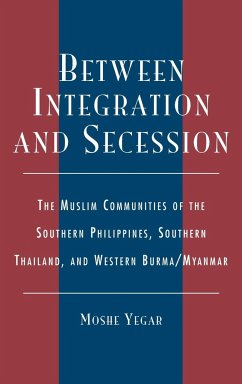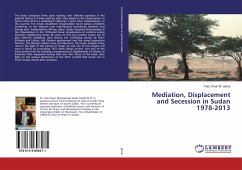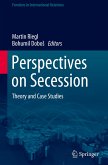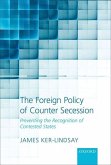Between Integration and Secession asks whether Muslim minorities can co-exist with the majority and other cultures within non-Muslim states. Moshe Yegar's excellent new work examines the radicalization of Muslim communities during the nationalist fervor that swept southeast Asia in the aftermath of World War II. The book's grand historical scope traces the theological and political impact of the postwar Islamic renaissance on the creation of Muslim separatist tendencies and heightened religious consciousness. Drawing on a wealth of archival and secondary sources, Yegar examines three cases of rebellion in Muslim minorities: in the Philippines, in Thailand, and in Burma/Myanmar. He studies the communities' struggle to define their aims-be it for communal separation, autonomy, or independence-and the means each has at their disposal to achieve them.
Hinweis: Dieser Artikel kann nur an eine deutsche Lieferadresse ausgeliefert werden.
Hinweis: Dieser Artikel kann nur an eine deutsche Lieferadresse ausgeliefert werden.








